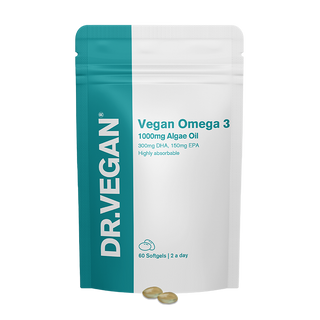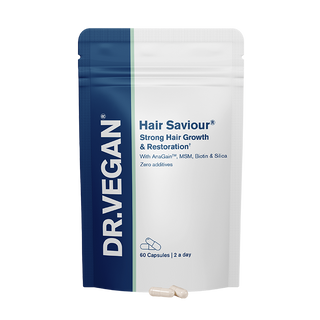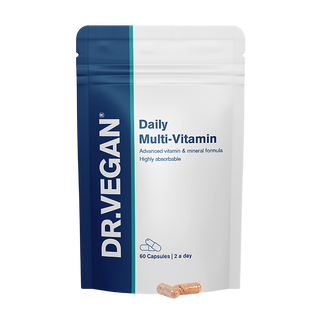Castor oil for hair: benefits, uses & side effects

Hair enthusiasts are buzzing with the resurgence of a hair elixir: castor oil. Castor oil has been gaining traction as a haircare superstar for those in pursuit of healthy, luscious locks. We explore whether castor oil is really the secret to hair growth and whether it works as an alternative treatment for haircare.
What is castor oil?
Castor oil, derived from the castor bean plant (Ricinus communis), is a multipurpose vegetable oil that has been used for thousands of years as a strong laxative. But did you know there are other benefits beyond it being a natural remedy for constipation? Castor oil has been used for many years for its benefits to hair. It's also been used as a natural skin moisturiser and has the potential to help promote wound healing.
Is castor oil good for hair?
While there is not a lot of scientific research discussing the benefits of castor oil, it is known that castor oil has a rich source of nutrients and fatty acids that help support hair growth, nourish the scalp and provide strength to hair follicles.
You may be interested in reading about how hormones affect your hair or what causes premature grey hair and if it can be reversed.
What's your diet missing? Create your free Diet Profile and find out.
Benefits of castor oil for hair
There are two main types of castor oil available: regular castor oil and Jamaican Black Castor Oil (JBCO). JBCO is often preferred for hair care due to its high ash content, which some believe provides additional benefits. However, both types can be effective. To ensure the best quality, opt for cold-pressed and hexane-free castor oil, which retains more of its beneficial properties.
Promotes healthier hair
The primary constituent of castor oil is ricinoleic acid, a monounsaturated fatty acid with unique properties. Ricinoleic acid provides castor oil with its thick and viscous texture, which can serve as a natural hair conditioner. The oil forms a coating on the hair shaft that can lock in moisture, offering deep conditioning to dry and damaged hair. This moisture-retentive quality can help improve hair's flexibility, making it smoother and more manageable.
Additionally, castor oil is rich in essential fatty acids and antioxidants that can contribute to healthier and shinier hair. These nutrients help nourish the hair shaft, restoring its vitality and shine. The emollient properties of castor oil also help in taming frizz, reducing roughness and imparting a sleek, glossy appearance to hair. For healthier hair growth and stronger, luscious hair, you can also try Hair Saviour®, a unique plant-based formula including the clinically proven AnaGain™, made from pea sprouts, that regenerates hair follicles to fuel hair growth.
Helps hair growth
In cases of androgenetic alopecia, ricinoleic acid in castor oil has been shown to have an effect on hair growth. Ricinoleic acid is thought to exert vasodilatory effects, which means it may relax and widen blood vessels, potentially enhancing blood circulation when applied topically. Improved blood flow to the scalp can provide essential nutrients and oxygen to hair follicles, supporting their function and promoting hair growth.
Prevents hair breakage
Castor oil is known for its high concentration of ricinoleic acid, which is a monounsaturated fatty acid. Ricinoleic acid exhibits anti-inflammatory and antimicrobial properties, potentially contributing to a healthier scalp. A clean and well-nourished scalp is essential for preventing hair damage, as it reduces the risk of conditions like dandruff or fungal infections, which can weaken hair and contribute to breakage.
Additionally, castor oil's emollient properties, which help to lock in moisture, can be advantageous in preventing split ends and hair breakage. Dry and brittle hair is more prone to damage, including the formation of split ends. The application of castor oil may help hydrate the hair shaft, thereby making it more pliable and less susceptible to breakage. While direct clinical studies on castor oil's impact on split ends and hair breakage may be limited, these attributes suggest it can play a role in maintaining hair health.
Discover the best foods and nutrients for hair growth and repair in our ultimate advice for hair loss guide.
Soothes the scalp
Firstly, castor oil is a potent emollient, meaning it is an excellent moisturiser. Its rich composition, primarily consisting of ricinoleic acid, helps to lock in moisture and hydrate the scalp. This moisturising action aids in alleviating dryness and irritation. By applying castor oil to the scalp, you can replenish lost moisture, soothe discomfort and create an environment conducive to healthy hair growth.
Castor oil also exhibits antibacterial and antifungal properties due to its unique fatty acid content. Ricinoleic acid possesses antibacterial and antifungal activity against a range of pathogens. These properties can help combat the micro-organisms that contribute to dandruff and other scalp issues. By reducing the proliferation of these microorganisms, castor oil can aid in relieving dandruff and promoting a healthier, flake-free scalp. You may be interested in reading 'Top tips for combatting a dry scalp'.
Side effects of castor oil for hair
A study noted that in rare cases, using castor oil on hair can result in hair 'felting' or 'matting', a rare disorder where the hair gets twisted and tangled into a hard mass, similar to a bird's nest.
A study noted that castor oil and castor oil derivatives can cause possible allergic contact dermatitis. This can be seen when castor oil is applied to the skin. Side effects include skin rashes, swelling and itching. When consumed, castor oil can cause a few adverse reactions, including abdominal cramping, vomiting, bloating and dizziness.
How to use castor oil for hair
Before applying castor oil to your hair and scalp, it's a good idea to do a patch test on a small area of your skin to check for any adverse reactions or allergies. You can apply castor oil to dry or slightly damp hair. If you're doing a deep conditioning treatment, damp hair can help with absorption. For a hot oil treatment, warm the oil slightly, but make sure it's not too hot to avoid burns.

Here are a few ways to apply castor oil to your hair:
- Before you start: Castor oil can be very heavy and sticky, so you may want to use gloves when applying it to your hair. Or you can dilute it by combining it with oils like coconut oil.
- Scalp massage: Start by applying the oil to your scalp. Use your fingertips to gently massage the oil into your scalp in circular motions. This helps improve blood circulation and may promote hair growth.
- Hair length: After focusing on your scalp, apply the remaining oil to the lengths of your hair, concentrating on dry or damaged areas. You can use a wide-tooth comb to help distribute the oil evenly.
- Cover your hair: To enhance the oil's absorption, you can cover your hair with a shower cap or a warm, damp towel. Leave it on for at least 30 minutes to a few hours, or even overnight for a deep treatment.
- Shampoo and condition: To remove the oil, shampoo your hair thoroughly and condition as usual. You may need to shampoo your hair more than once to ensure all the oil is washed out.
- Frequency: You can use castor oil as a hair treatment once a week or as needed. For daily use, consider using a small amount of castor oil as a leave-in conditioner on the tips of your hair.
Remember, consistency is key when using castor oil for hair benefits. Results may vary from person to person, so it's essential to be patient and give your hair time to respond to the treatment.
Other ways to get healthy hair
Diet for healthy hair
Your scalp and hair health can be a good indicator of your overall wellbeing. Eating a healthy, balanced diet can help provide your body with the essential nutrients it needs to maintain a healthy hair and scalp.
Look to include foods in your diet that are high in Protein, Biotin, Copper, Selenium and Zinc, these nutrients will help to support your hair follicles and scalp. Add hair-loving foods like Brazil nuts, sweet potatoes, mushrooms and whole grains to your next shopping list to kick off your healthy hair journey. But keep in mind, it takes time for your hair to grow, so don't expect to see results right away.
You may be interested in reading '5 key nutrients for healthy hair' and 'Why Zinc is so important for your immune system, hair & skin'.
Supplements for healthy hair
Hair Saviour® is the best hair supplement for healthy, strong, thick hair. Combining clinically proven AnaGain™ with MSM, Saw Palmetto, Silica, Alfalfa, Zinc and Biotin, Hair Saviour® is a nutrient-rich formula to combat hair thinning, and dull, dry and brittle hair, fuelling naturally strong, healthy hair.
Sourced from pea sprouts, which are rich in phytonutrients, AnaGain™ is shown to support hair growth and fuller, thicker hair. In a clinical study, it was shown that the ratio of healthy, active hair follicles to degenerating ones could be improved from 4.0 to 7.2, which equates to a 78% increase in the propensity for hair growth in a three-month period.
Key takeaway
While castor oil is trending to help naturally improve hair health and texture and has been used for many years to support healthy hair, it is not clinically proven to help improve hair health. A healthy, balanced diet including hair-loving nutrients and a nutrient-rich hair supplement like Hair Saviour® can help your journey to better locks.
Discover our range of vegan supplements and probiotics.
You may also enjoy reading:
- Does Rosemary Oil help hair growth?
- Is MSM good for hair growth and strength?
- What does Zinc do to your skin?
- How menopause affects your skin and hair
Want to hear more from our nutritionists? Sign up to our email newsletter for insights and exclusive offers:






















